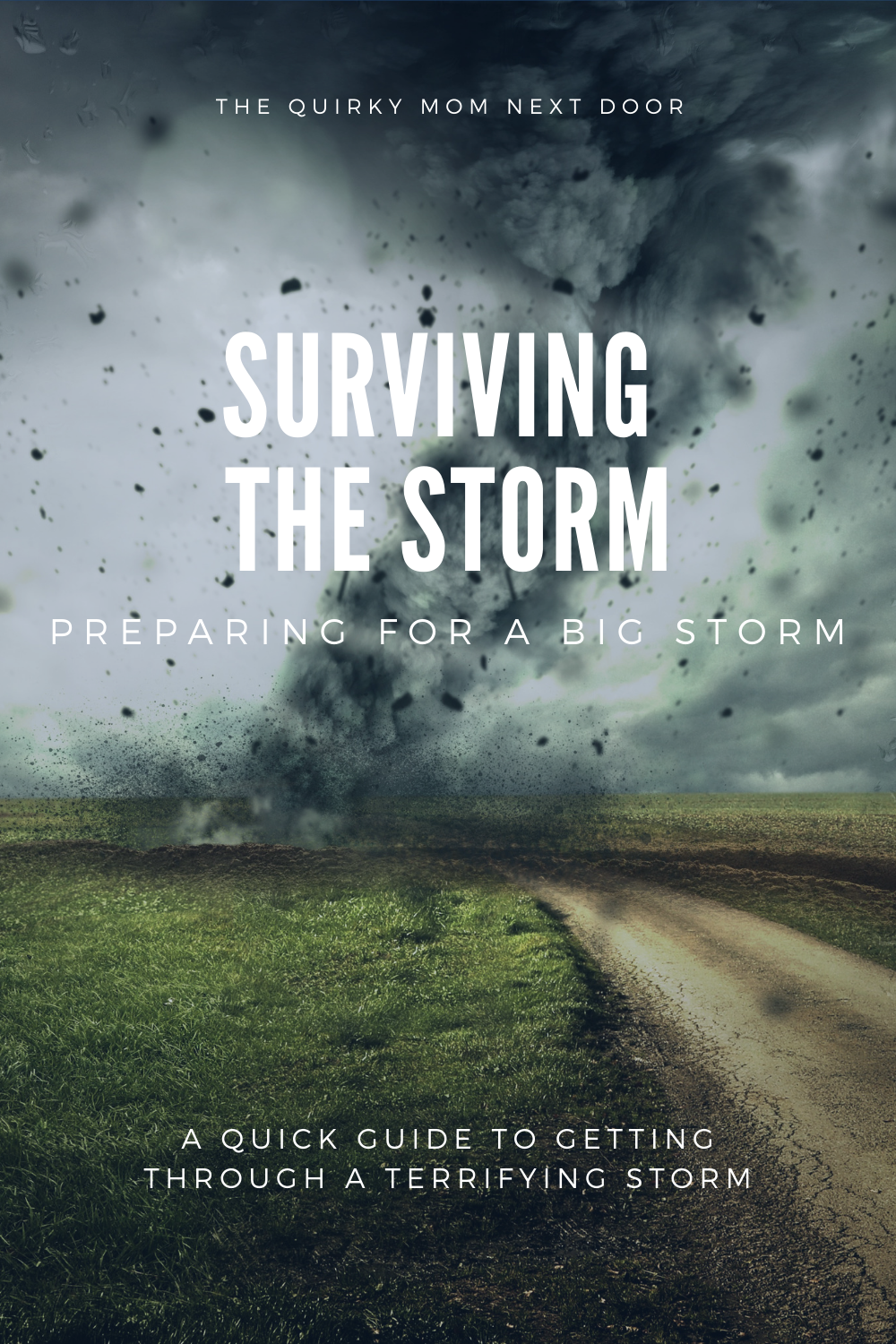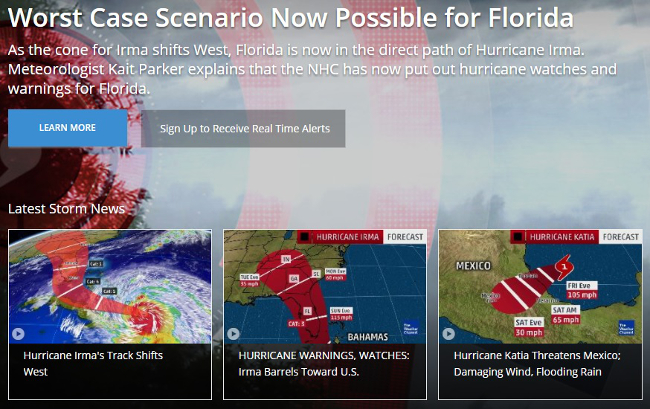Here we are in early September, and we’re just now entering the peak of the season for hurricanes. My best friend lives in Texas, and he is still dealing with the aftermath from Hurricane Harvey. Before it hit, I was watching it closely to see where it would land. I have been clicking ‘Hurricane Central’ at least twice a day since. There really is a lot of storm activity going on. Hurricane Irma is currently a category five storm, and will hit Florida in a day or two. Hurricane Jose will likely not see any landfall here in the states, and neither will Hurricane Katia. We are now eleven storms into the year. Seeing what my friend is going through, I wanted to share some tips on how to survive one.
In short, prepare for it. If you’re prepared, you can weather virtually everything that comes at you. I like to make fun of people who rush out to get their milk and bread every time any storm is on the radar. It amazes me how quickly things will sell out, and then the storm will pass without knocking over a lawn chair. Everyone will typically complain because the news made the storm out to be the end of the world. In truth, they have to, because if they don’t, people will complain that they weren’t warned, and when we aren’t warned, we won’t prepare. I’ve found that life will often hit you the hardest when you least expect it to.
So for starters, the first rule of preparation is to keep your eye on the horizon. You need to know what’s coming, and when, and at least have an idea about what could happen. Only then can you plan. I strongly suggest resisting the urge to stock your home up 100%. I watch people in the grocery stores filling their carts up with anything and everything. There are some areas you should avoid, like the dairy aisle, and the frozen foods. If you stock up your freezer and fridge, and you lose power for several days, you’ll have a lot of spoiled food. Instead, focus on non perishables like cereals, almond or coconut milks, bottled waters, etc. The food won’t go bad, and in the worst case scenario, your pantry is stocked for a while.
Don’t forget about your gas situation. If you have a five gallon container for gas, make sure it’s full. If an area has no power, then the gasoline pumps won’t work. If your area doesn’t lose power, well, you have five gallons to use in the next week. There’s no harm done in making sure you have it on hand, and if an evacuation is in order, you’ll have a vehicle you can rely on. Another area to think about is propane. Regardless of what you cook with, electric or natural gas, there’s no guarantee it will be available. An outdoor grill could be a life saver, regardless of season.
Now let’s talk about a bug out box. It’s an emergency kit you keep by the door. The contents there of are truly up to you. We have a kit that gets pulled out for every thunderstorm. In it, you’ll find things like flashlights, extra batteries, a battery powered/hand cranked radio, and a few candles. The dark scares kids, and being able to soothe them with music/portable light is a blessing. I’d also add in some car chargers for your portables. You can always head out to the car to put some juice into your phone. You need to be able to stay connected!
One thing you can add into that kit is some waterproofed matches. You can use a variety of materials to do the job quickly at your house. Some people use clear nail polish, while others will use wax from a burning candle. Whatever you decide to use, try it first. You’ll find some methods work better than others, and it’s a neat trick to share with the kids.
Last but not least, plan for the weather. If it’s a rain storm, add in some ponchos to the kit. If it’s a snowstorm, have some blankets handy. If you need to grab and go, having everything close together will save you time and energy, and knowing where it is will save you some bumps and bruises at night when the lights fail.
So I’ve covered blackouts, but what about lack of water? I read a story about guys raiding a Coca Cola warehouse in Beaumont Texas recently. Water was scarce. They got permission, and raided the warehouse for cases of water. It made me think… How can you plan for a contaminated supply, or simple lack of water? One way you can prepare is to fill up several plastic containers. They can range from storage items, to empty soda bottles. It really doesn’t matter. Fill them up, and freeze them. Then if you have a cooler or two, you can put them in the coolers. The next step is to fill the cooler with water, around the frozen containers. Why? If the cooler has a spigot, great. You can enjoy cold water for days, and as the cooler empties, you still have some stored in the containers themselves. If you leave them in the freezer, they’ll also help keep your food from spoiling. It’s a win-win all around!
That covers some of the environmental issues that could befall you. You should also prepare for boredom, especially if you have kids. Ensure all your tablets, laptops, and cell phones are charged. If you have power banks, get them ready. I recently got my hands on a solar power bank, and you better believe it will be ready to keep my phone up and running well in advance. We will also have several board games at the ready, books on hand, coloring books, and sketch pads available.
Those are just some of the tips I wanted to share with you. Do you have any of your own? I’d love to hear them in the comments!

